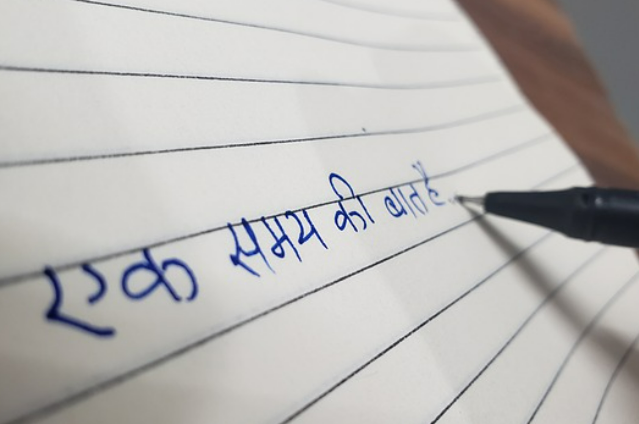
Hindi Diwas is celebrated every year on the 14th of September to mark Hindi as the Republic of India’s official language. Post India independence, on 14 September 1949, the Constituent Assembly of India declared Hindi scripted in the Devanagari script as the 'national language' which is our identity to the world. However, the idea of using it as the official language was sanctioned by the Constitution of the country on 26th January 1950.
From our mesmerizing landscapes to our rich heritage, from unique culture and diverse history to joyful festivals, India is a gorgeous amalgamation of traditions, languages, and people. Being a multi-cultural, multi-lingual, and multi-religious society, India has seen steady progress in various spheres over the last century after being free from the slavery of 200 years of British on 15th August 1947. India is currently celebrating its seventy-five years of independence where Azadi ka Amrit Mahotsav is being observed to celebrate the glorious history of its people, culture, and achievements.
India is a secular country which boasts about its constitution that guarantees all its citizens the freedom of faith, right to freedom of expression, right to speak different languages, and livelihood. India’s great historical heritage signifies its dynamism and optimism.
Being the ancient, simple and third most spoken language in the world, Hindi is a matter of our honour, self-respect, and pride.
With the world’s second-largest population belonging to various ethnic groups, the greatest virtue of Indian culture has been its power to tolerate against challenges. Despite the invasions and rule by the Britishers, the oneness of the whole nation despite its diverse caste and race stood with its moral and spiritual values that strengthened India’s struggle and forced the British Empire to free India from its captivity.
We have “RAM” in RAMZAN and “ALI” in DIWALI. How can religion divide us?
The difference in opinion, way of life, faith, and religion is its strength and pride, not weakness.
Mahatma Gandhi has said – “There is no nation without a national language.”
Hindi is the most spoken, simple, easy-to-understand language spoken by almost 70 percent of the population in India. With the world’s second-largest population belonging to various ethnic groups, the greatest virtue of Indian culture has been its power to tolerate challenges. Despite the invasions and rule by the Britishers, the oneness of the whole nation despite its diverse caste and race stood with its moral and spiritual values that strengthened India’s struggle and forced the British Empire to free India from their captivity and they felt the need of the country to have a national language of its own as a symbol of unity, harmony, the brotherhood of the nation.
It provides a sense of patriotism and a reminder of our culture and values and the sacrifices made by the great leaders of the country like Mahatma Gandhi, Dr. Rajendra Prasad, and Kakasaheb Kalelkar.
Hindi Diwas is a great way to promote and encourage the use of Hindi on a pan-India basis in all government and non-government sectors as English has overtaken it in a great way. A host of activities take place across Indian institutions and offices to commemorate this day and Special functions line up in almost all the government offices as a mark of honor for this language.
India during the freedom struggle was in dire need of an unifying factor to bring oneness to the country so Hindi was identified as the bridge to shorten the gap of the divide and consolidate unity.
Even after more than seven decades of independence, Hindi has yet to achieve star status However, it is a fact that not only within the country but Hindi is also recognized as an International language as it is brought into use by people of Indian origin settled abroad
It is a day to stress upon the importance of the Hindi language which is losing its significance in a country where English speaking population is considered smarter. It is sad to see how during job interviews, people who speak English are given preference over others. It clearly shows that employers mistake a person’s English language skills for their knowledge about the task at hand. It is time to overcome this biased attitude.
Hindi Diwas is a great step to emphasize the importance of our national language as well as our culture.
